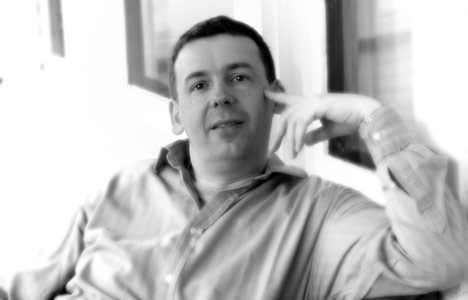He is a priestly rarity: without portfolio, belonging to no order or diocese. Despite his published works and his frequent assertion that homosexuality is "a regularly occurring, non-pathological sexual variant in the human race," he remains unsilenced and un-defrocked.
He is also a Girardian, not a point of view I sympathize with. Smells too much of the ideology of sacred victimhood and the myth of The Great Secret.
His approach to the issue of homosexuality is not simply moral. He takes an usually optimistic but very long view and circles around toward it through a re-thinking of more fundamental theology about sin and nature, grace and truth, as is clear from the brief email exchange I had with him in 2009.
Hello, James. I am a fellow former Dominican and gay man. I left the Order and stopped the practice of Catholicism because I became convinced that being gay and being Catholic simply doesn’t work, for either side of the equation.
Being asked to regard something so central to my identity, my erotic self, as a sinful mistake was just too much. Sinful I have been and mistakes I make aplenty. But that’s because I am human, not because I am homosexual.
I also came to realize that for the Church to accept my erotic self would mean the eventual unraveling of its sexual ethic, a monumental self-inflicted wound. Within the mountains of writing and talking about morality, the Catholic sex ethic is really quite simple: "the only valid use of the full sexual faculty is between husband and wife, open to the begetting of children."
Once you make an exception to that, especially so huge an exception as two men having penetrative intercourse with each other, what ethical norm remains?
That’s my inquiry. What usable ethical principle, allowing same-gender sex, could replace the current Catholic axiom and still maintain a credible continuity with its tradition?
His reply:
What an interesting question you ask! And it’s one for which I’m not sure that I have any answer. I don’t know what, if anything, you’ve read of mine (I’m guessing something, or else you wouldn’t have found my e-mail address), but I would be hard put to find anywhere where I have even attempted at having a go at talking about sexual morality. In fact, I’ve tried to avoid moral theology all together, not having the patience (or the capacity for exemplary living) for it.
This doesn’t make your question any less pertinent, it’s merely a reflection of why I don’t think I’m going to be very helpful to you. My stuff has been much more concerned with the logical questions of whether the Church’s teaching in this area could possibly be true on general grounds of systematics to do with Creation, redemption, grace, original sin etc. The next question: given that it isn’t true, what on earth are we going to do about it, is one for gay and lesbian catholics over time in their lives, and the question after that: how is the understanding of “what is good” going to fit into whatever we will discover to have been the tradition as what you describe as the current axiom breaks down, is the one for moral theologians. I rather think Mark Jordan has been brave enough to have had a stab at re-thinking sexual morality in this area. Have you come across him and his writing? If not, highly recommended. The Ethics of Sex.
Hmmm. I’m sure that this is not a satisfactory answer, but then I’m also pretty sure that the axiom only “worked” in a world in which people didn’t talk about their sex-lives. When the components of emotional honesty and ability to talk about actual, rather than theoretical practice, become as widespread as they have now, then males engaged in penetrative intercourse with each other are the least of the problems faced by the axiom...Cheers, James
Perhaps a part of what brings people like me and people like him to different conclusions is about attachment and hope, capacities for living with confusion. Or wishful thinking.
--


1 comment:
If every ecumenical council is in response to the most recent political challenge to the Church's doctrine, then the next one will deal with the sexual revolution. That has so thoroughly countered the Church, the response may be as transformative and complete as the Council of Trent.
Perhaps against my better judgment, I hope that I will yet be reconciled with the Church. One can only hope.
-Sean
Post a Comment